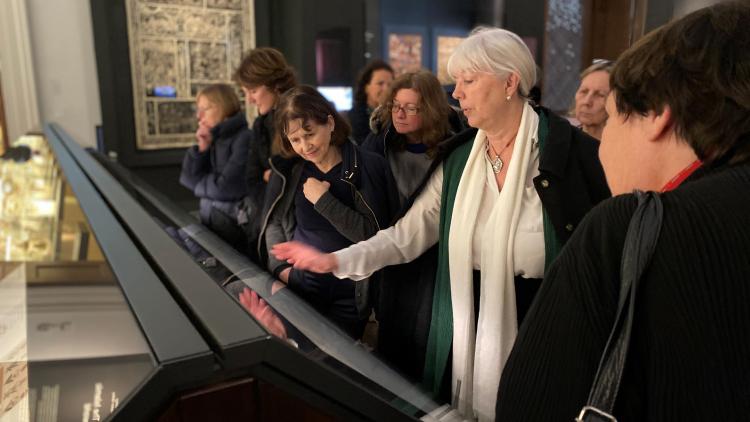Designing contextualised AMR awareness campaigns to promote transformational societal change


Overview
According to the WHO, Antimicrobial resistance (AMR) occurs when bacteria, viruses, fungi and parasites change over time and no longer respond to medicines making infections harder to treat and increasing the risk of disease spread, severe illness and death. AMR is recognised as one of the top 10 global public health threats facing humanity. AMR is a broad term, encompassing resistance to drugs to treat infections caused by various microbes. Antibiotics resistance is a specific term for resistance to drugs used to prevent and treat bacterial infections. It is very important to use the right antibiotics at the right time for the right periods when needed.
The Bloomsbury SET funded project entitled “Contextualise antimicrobial resistance perspectives in Sri Lanka and European Union”, which was conducted by Dr Risa Morimoto & Dr Simon Rofe at SOAS University of London, Prof Ayona Silva-Fletcher at Royal Veterinary College, Prof Marin Bauer at London School of Economics, Prof Mohan Munasinghe at MIND Sri Lanka, has analysed the existing Eurobarometer data sets as well as newly acquired household survey data in Sri Lanka to better understand social science factors that potentially contribute to the spread of antibiotic and antimicrobial resistance. At the country level in Europe, antibiotic resistance seems to be socially structured awareness: the more educated, the older and the better situated have generally higher awareness of antibiotics. We have further considered six sets of structural variables which have statistical associations with antibiotic resistance awareness in Sri Lanka: socio-demographic, politics, business mentality, medical culture, traditional mentality, science knowledge, and science culture. We have observed a wide range of variation in terms of the influence of those socio- economic variables on antibiotic resistance awareness within the different regions in Sri Lanka. In general, antibiotic resistance awareness in Sri Lanka still appears relatively low compared to European countries. Our research calls for enhanced action plans to increase the antibiotic knowledge level with a particular focus on certain population groups, such as youths, and geographical areas: e.g., remote regions.
Our follow-up project, funded by SOAS Impact Knowledge Exchange Fund, developed various communication materials for the targeted groups we identified in the first project, a story book for primary school children, comic book for secondary school children and film for rural youth in local languages (Sinhala and Tamil). We have created the materials in collaboration with local artists (authors, illustrators, film producers) using information identified as crucial and accurate by experts (social scientists, microbiologists, veterinary scientists). The draft materials were also produced jointly with potential users by incorporating their ideas and suggestions. We have tested with the sample target groups in Sri Lanka to assess whether intended awareness raising impacts were realised.
Key publications
- Morimoto et al (2022), Comparing awareness of antimicrobial resistance in Sri Lankan and the European Union, in Bauer MW & B Schiele, eds; Science Communication: taking a step back to move forward, Paris, CNRS, 2022
Podcasts, short films and story books
Podcasts
- Antimicrobial resistance and wildlife in Sri Lanka
- The socio-economic drivers behind antimicrobial resistance in Sri Lanka
- Antimicrobial resistance and wildlife in Sri Lanka (Tamil)
- The socio-economic drivers behind antimicrobial resistance in Sri Lanka (Tamil)
- Antimicrobial resistance and wildlife in Sri Lanka (Sinhala)
- The socio-economic drivers behind antimicrobial resistance in Sri Lanka (Sinhala)
Short films
Story and comic books
-
Story book for primary school children (English)
PDF document, 28.25MB
-
Story book for primary school children (Sinhala)
PDF document, 29.89MB
-
Story book for primary school children (Tamil)
PDF document, 29.41MB
-
Comic book for secondary school children (English)
PDF document, 5.42MB
-
Comic book for secondary school children (Sinhala)
PDF document, 39.99MB
-
Comic book for secondary school children (Tamil)
PDF document, 39.95MB
Key researchers
Prof Ayona Silva-Fletcher (Royal Veterinary College London)
Prof Ruwani Kalupahara (University of Peradeniya Sri Lanka)
Dr Wasana Kudagammana (University of Peradeniya Sri Lanka)
Indrajee De Zoysa (University of Peradeniya Sri Lanka)
Amani Herath (University of Peradeniya Sri Lanka)
Shanilki Yalegama (University of Peradeniya Sri Lanka)



